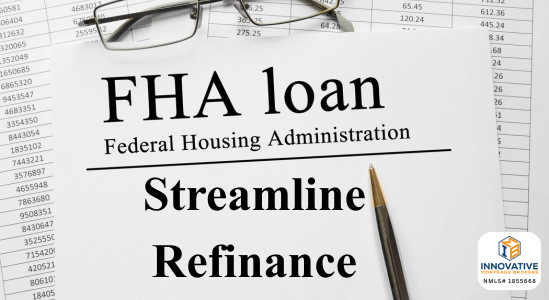What 90% LTV cashout means, who qualifies, and how to structure it Tapping your equity…
7 Ways your Mortgage Payment may Increase

You sign your mortgage disclosures and budget carefully for the mortgage payment stated on them. You’d think that’s your payment for the next 30 years, but suddenly, your mortgage payment has increased.
What’s the deal?
It’s true, your mortgage payment can and most likely will increase. Of course, it won’t happen to everyone, but even fixed-rate mortgage payments may increase periodically due to various factors.
If you have a fixed-rate mortgage, the increase in the mortgage payment is usually minimal. However, if you have anything but a fixed-rate mortgage, there’s a strong chance your payment will increase, sometimes significantly.
7 Ways your Mortgage Payment may Increase
Every situation is different, and mortgage payments won’t always increase, but knowing what circumstances might cause your payment to increase is important so you can plan accordingly.
Most of these situations you can’t change and might not be able to prepare for but knowing that it’s a possibility that your payment might increase is important.
Interest Rate Adjustments
If you have an adjustable-rate mortgage, you will likely have a mortgage payment that changes annually, and sometimes it may increase.
ARM loans have an introductory period, which provides a fixed interest rate. After the introductory period ends, though, your rate will adjust annually.
There isn’t a way to predict what will happen because it depends on the market. Your interest rate is based on an index, such as the prime or LIBOR rate. Your payment will increase if your index increases around your change date.
Fortunately, there are limits regarding how much the rate can increase, so you always know the worst-case scenario.
Interest-Only Period Expired
Interest-only mortgages aren’t as common any longer, but some lenders offer them. These mortgages have a period of interest only for a short time, usually a few years. After the introductory period ends, your payment adjusts to include principal and interest for the rest of the term. This will increase your mortgage payment for the rest of the term.
Property Taxes Increased
If you have an escrow account on your mortgage, you pay 1/12th of your property tax bill monthly. If your property taxes are reassessed and increase, it could increase your mortgage payment.
Your property taxes may also increase if you lose any exemptions. In some areas, you must reapply for the exemptions annually; if you forget, you lose them.
Home Insurance Premiums Increased
Just like your property taxes, your home insurance premiums usually increase too. Each year you’ll get a new declarations page, so you know how much your premiums are that year. You also have the option to change insurance carriers if you want to lower your premiums.
However, insurance premiums generally increase over time, which means your mortgage payment will go up too.
Adding an Escrow Account
If you didn’t open an escrow account initially when you took out your mortgage but decide down the road you want one, it would increase your mortgage payment.
Some homeowners choose to do this to keep themselves accountable and to reduce the need for lump sum payments for taxes and insurance each year.
Escrow Shortage
Mortgage lenders base your escrow payment on the information they have at the time. Usually, your property tax and/or home insurance costs increase, leaving you with an escrow shortage.
Each year, your lender will do an escrow analysis to determine if your escrow balance is short. If it is, they may need to increase your payment to make up for the shortage, plus the additional increase in taxes or insurance.
The only way to avoid this is to pay the shortage in a lump sum, essentially paying the mortgage company back the funds they fronted for you to cover your taxes or insurance.
Refinancing
You may have the option to refinance your mortgage, which depending on the circumstances, can increase your payment.
For example, if you tap into your home’s equity, borrowing more money from it, you’ll have a higher payment. You may also have a higher payment if you shorten your loan’s term to pay it off faster. As a result, you’ll pay less interest but more principal to get it paid off in time.
Does a Mortgage Payment ever Decrease?
Just like mortgage payments can increase, they may also decrease. It’s not as common, but here are some reasons your mortgage payment may go down.
Eliminating PMI
If you pay your mortgage balance to less than 80% of its value on a conventional loan, you can ask the lender to cancel your Private Mortgage Insurance. Eliminating the insurance can decrease your mortgage payment.
This is only the case if you have a conventional loan, though. The mortgage insurance lasts for the entire term if you have an FHA or USDA loan, although those guidelines recently changed as well. Usually, the only way to eliminate mortgage insurance on government-backed loans is to refinance into a conventional loan.
Taxes or Insurance Decrease
Your mortgage payment may go down if your real estate taxes or home insurance premiums decrease. This happens occasionally, but it’s more common for taxes and insurance to increase instead.
Interest Rates Decrease
If you have an ARM loan and are lucky enough that interest rates fall before your rate adjusts, you might have a lower payment than originally.
Final Thoughts
It’s important to budget properly for your mortgage payment, including the fact that it might increase. Owning a home includes many responsibilities, including maintenance, repairs, taxes, and insurance.
Having an emergency fund to cover your expenses or to make up the difference if your mortgage payment increases is the best way to stay on track. If your payment increases too much, you can consider refinancing your mortgage or talking to your lender about a loan modification (usually should be used as last resort) to make it more affordable.
With the number of products and lenders available in the mortgage market today, it is important to have an experienced professional to ensure you make the right decision when choosing a loan. A reputable mortgage broker can be invaluable as they will be able to shop around and compare various loan offers from different lenders on your behalf. Not only will they be able to negotiate a better deal for you, but they can also provide vital advice that may have an impact on your financial situation long-term. Utilizing a qualified mortgage broker not only has the potential to save you time and money but could even result in a better outcome than if you had gone it alone.
At Innovative Mortgage Brokers we help clients in Pennsylvania and Florida, and have access to a wide range of lenders with many different products at extremely competitive rates. We can help you compare rates while providing advice on the best product for your needs. We are also well-versed in the complex paperwork required to secure a mortgage and will go the extra mile to ensure our clients get the most attractive loan terms possible. Whether you’re a first-time homebuyer or an experienced investor, at Innovative Mortgage Brokers we can help make finding the perfect mortgage easier and smoother. This peace of mind is especially valuable when making one of the most important financial decisions in someone’s life. At the end of the day, choosing an experienced, qualified mortgage broker is a worthwhile investment with substantial long-term benefits.




